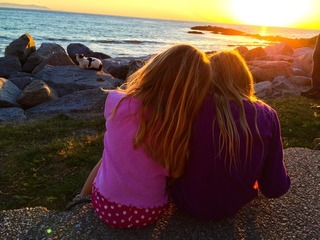
My response to this question, from 2009:
What resources do you use for your children’s “educations”? Feel free to comment on the word “education”.
We don’t “educate” our children. We help arrange so that they have so many learning opportunities they can’t possibly take advantage of them all. We have friends with interesting jobs and hobbies. We invite them over, and we visit them. We have a house full of books, music, games, toys, movies, art materials, plants, food and dress-up clothes. We don’t expect learning to happen in the house, nor in museums, but we know it happens everywhere. We don’t expect learning to happen during daylight hours or on weekdays. We know it happens all the time. So we don’t “use resources” except that we see every thing we discuss or see, smell, touch, hear or taste to be a resource. It’s not a word we use, because it’s all of life.
photo by Cá Maciel






